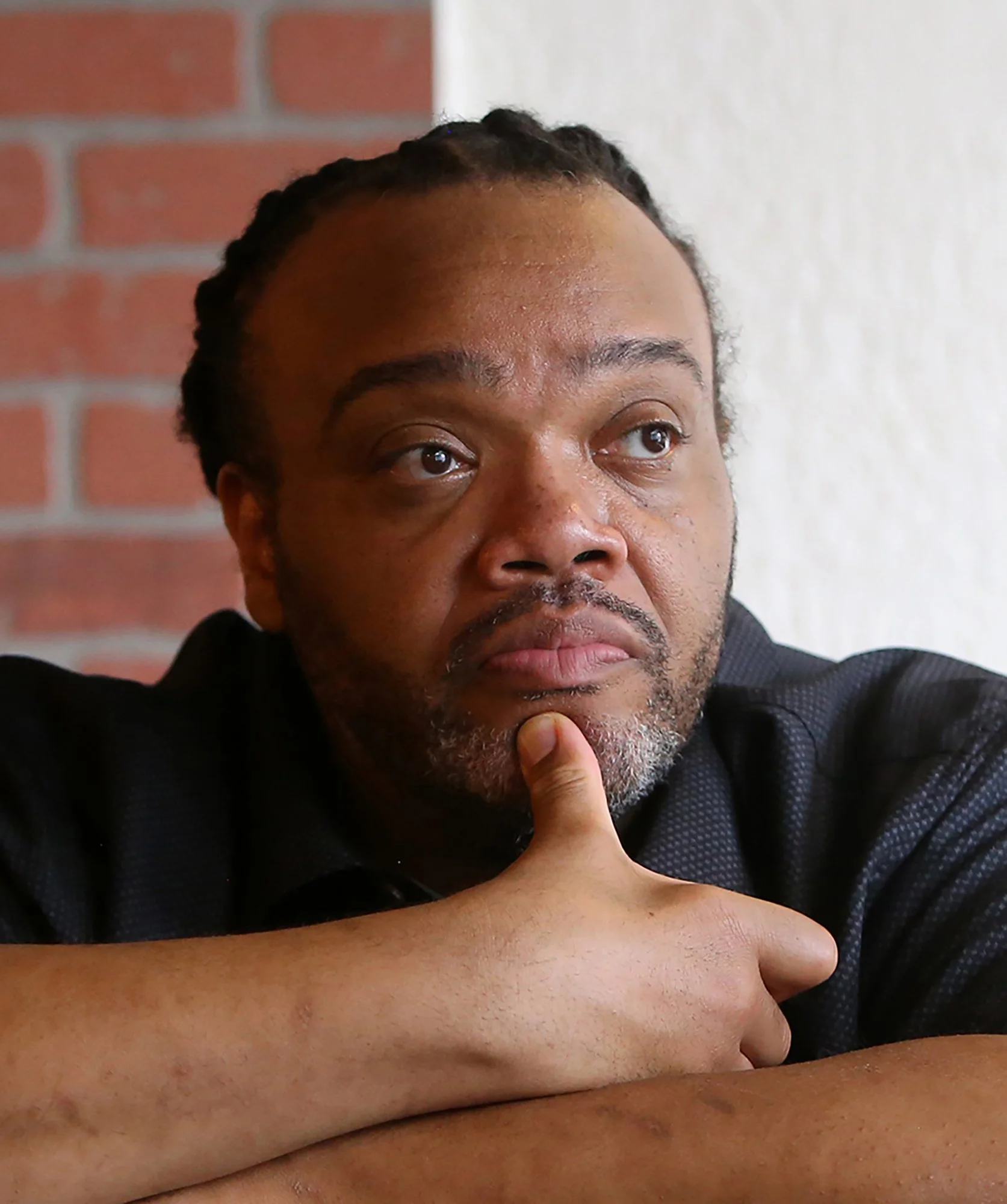I remember sitting in prison watching the spectacle that was the 2016 presidential election. It was so powerful that I began to see how my societal role would start to change. Whoever won this presidency would still be in office once I was released. I was determined to vote once free, but I had no idea if I could. As it stands, voters' rights are restored once leaving prison. You need an I.D. and must re-register if you were already registered before your prison sentence. This can be frustrating to the newly released person, but I was determined to be a part of that process. After my first vote, there was a feeling of investment and engagement. I was also a father to a young girl and her brothers, and I wanted a better society for them. Civic engagement, particularly voting, is a great vehicle to attain those goals.
Q&A with Anthony Payton and Tyrell Whitted
Anthony Payton, joined by his son and co-founder of Black Lives Matter Manchester Tyrell Whitted and Chief Diversity Officer at Franklin Pierce University Pierre Morten, discuss the effects race and masculinity had on them growing up, as well as the progress they’ve made individually and as a community.
Own worst enemy
As we step foot into this new year and I continue crafting my goals for the year, I decided to reach back to a few young men from my past to get an update on where they are in life. I wanted to see if there was any advice that I could offer to them, or possibly have an exchange of ideas that could benefit us all. It turns out that they were doing well, but that wasn’t the case for some of the younger generation.
Am I a patriot? Yes, and you are too.
As football season rolls in, I’m reminded of how strongly people felt, on both sides, when some NFL players took a knee during the national anthem. I remember the feelings and opinions being so intense that it ruined friendships, dominated social media and gave the impression that these highly paid athletes, mostly Black men, were unpatriotic.
I have a different view of that.
Not everything is as it seems, sometimes it’s better
As I made my way through the aisles, I got a stare from a white male, maybe in his mid-30s to early-40s. He had a scraggly beard, work boots, faded jeans, and a worn t-shirt. On his waist, an open-carry but holstered handgun. I’d made my complete assessment of him within seconds: Proud Boy member, Pro-White hate group, Far-right conservative. I just knew that in the parking lot, he likely had a 4x4 pick-up truck that was plastered with inflammatory and divisive slogans, topped with at least 16 American flags.
I’ve seen this all before.




